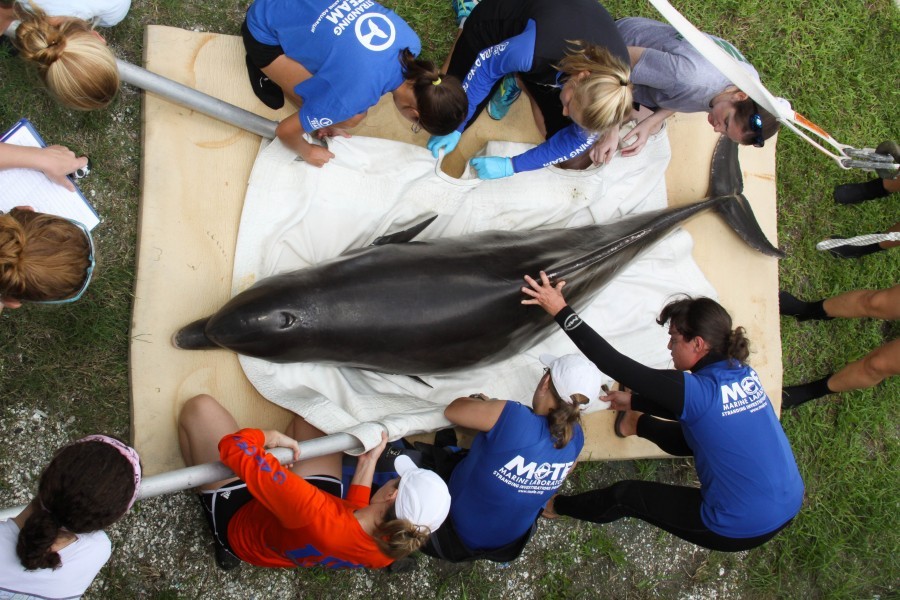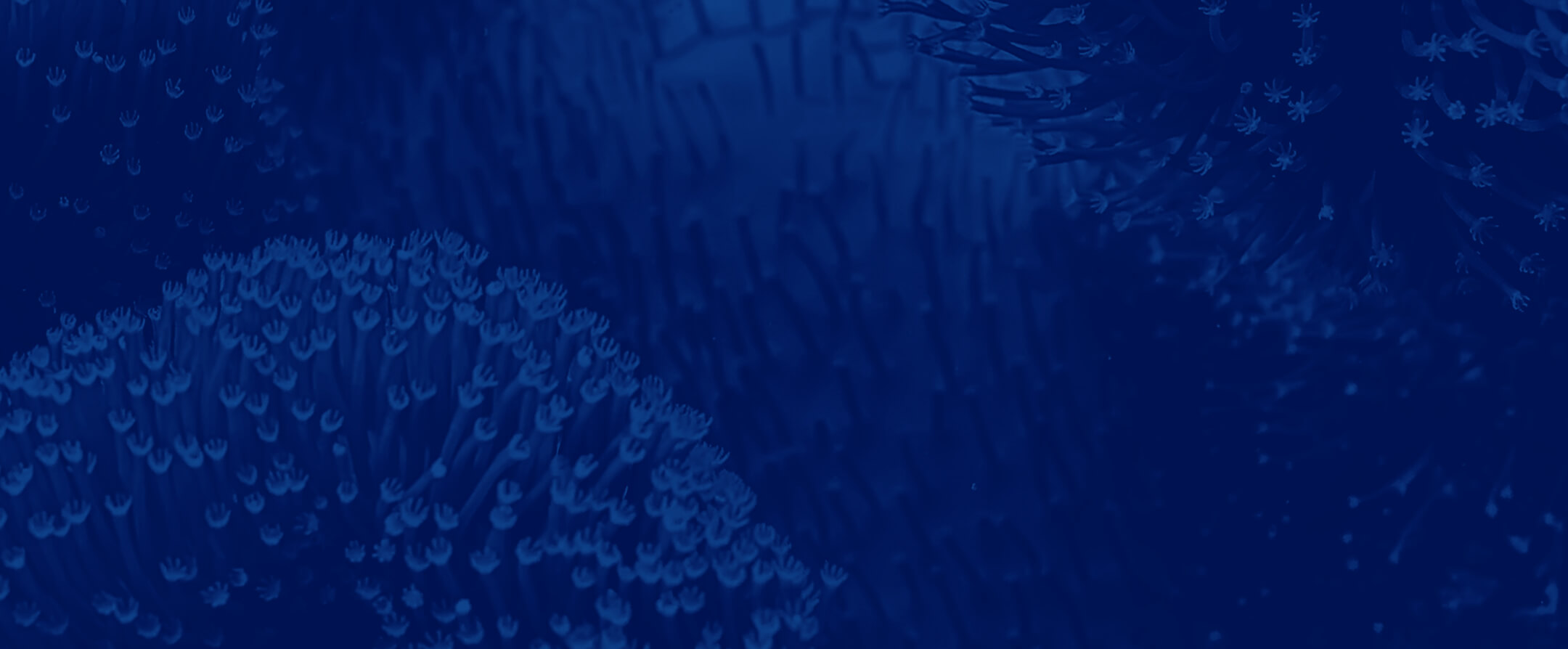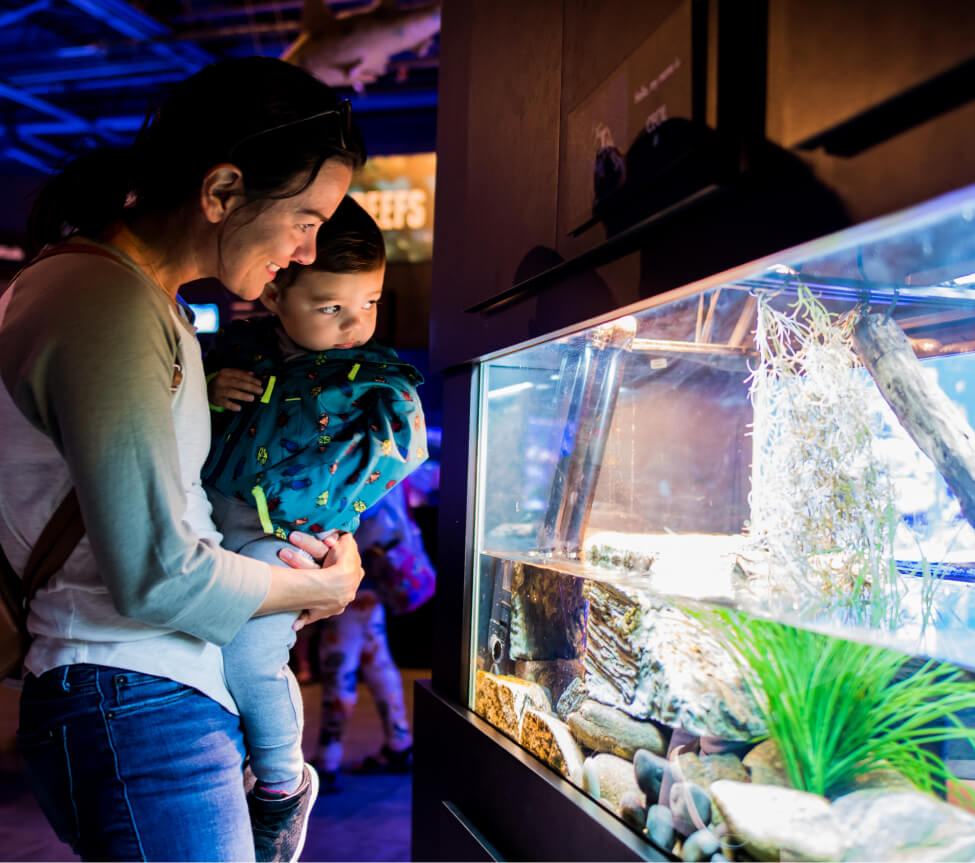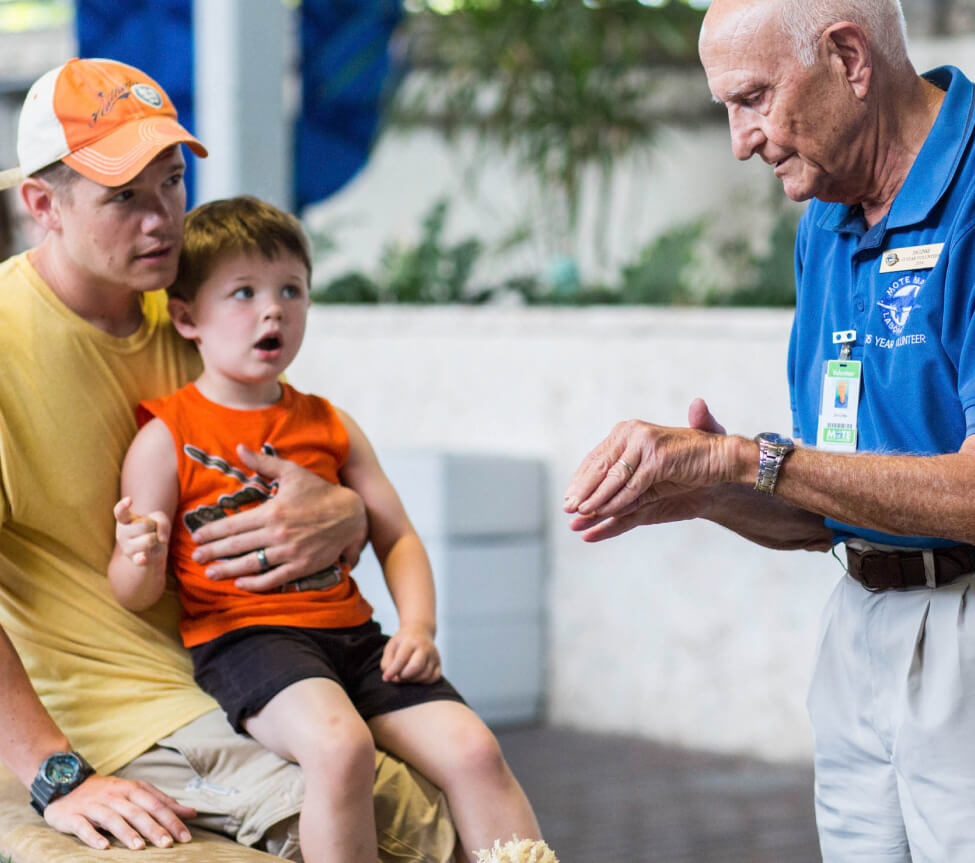Marine Mammal & Sea Turtle Stranding Investigations REU
Internship Mentor: Gretchen Lovewell
Mote’s Stranding Investigations Program responds to reports of marine mammal and sea turtle strandings 24 hours a day, seven days a week. Live and dead cetaceans (whales and dolphins) and sea turtles are rescued and/or recovered and transported to Mote for rehabilitation or detailed post-mortem examination. The majority of the work is carcass recovery and necropsy, not rescue and rehabilitation. Interns will assist in responding to stranding calls, documenting stranding events and collecting samples and data. Interns will also assist researchers and program staff with other projects, such as sample processing, assisting in the Ruth DeLynn Cetacean Osteological Collection and general maintenance of stranding equipment.
REU interns will be expected to create, implement and present a research project. Successful students should “think outside of the box” and be creative and innovative. For example, investigating the amount of human interaction found in stranded marine animals is not a research project; that is part of the standard data we collect on every animal. We encourage students to ask questions of those data such as ‘how, when, why, where’ are animals affected by humans, what can be done to help conservation, or to ask anatomical, physiological, or life-history questions.




